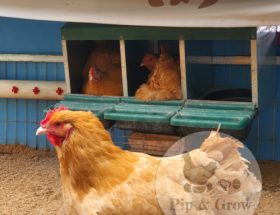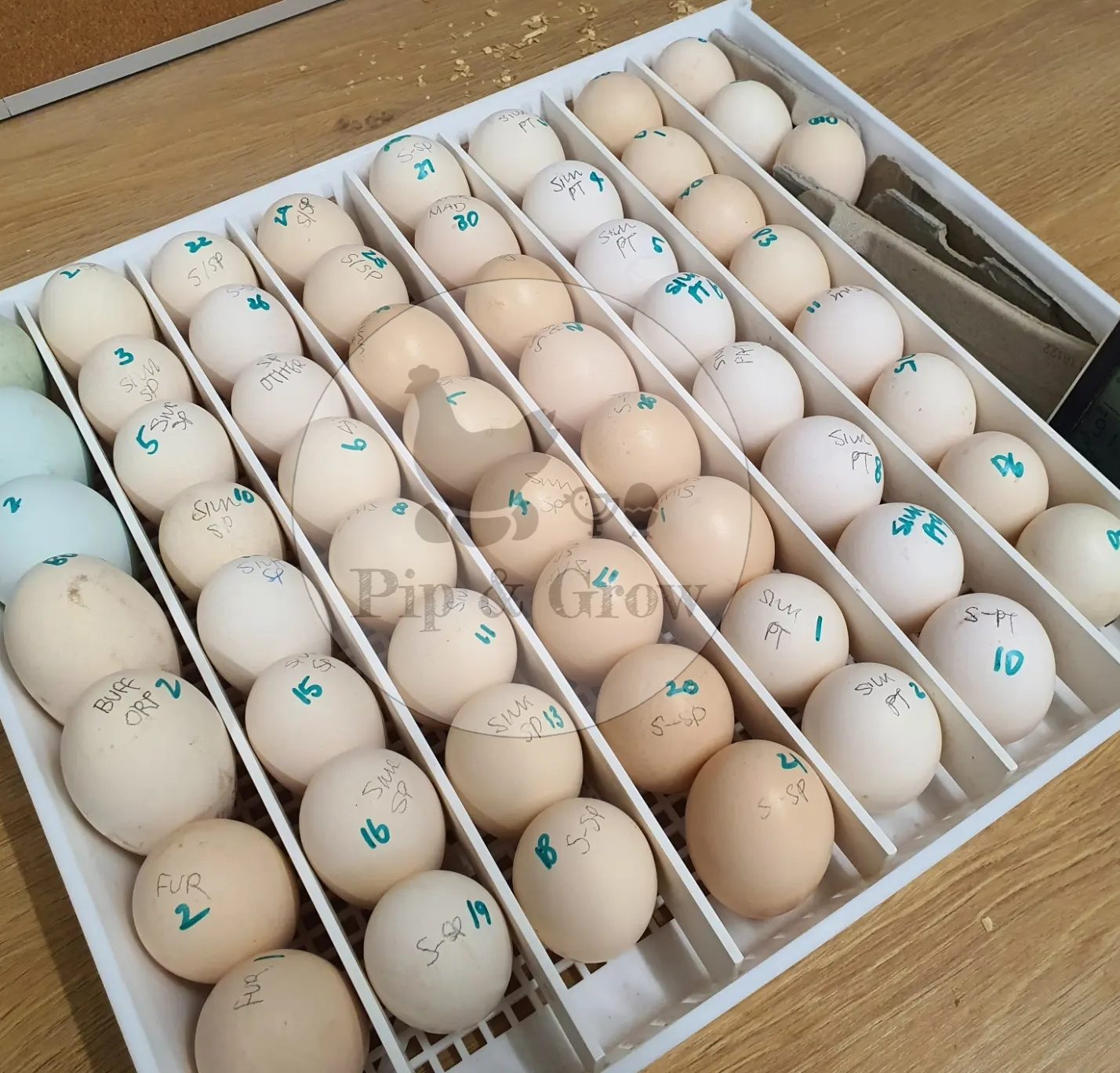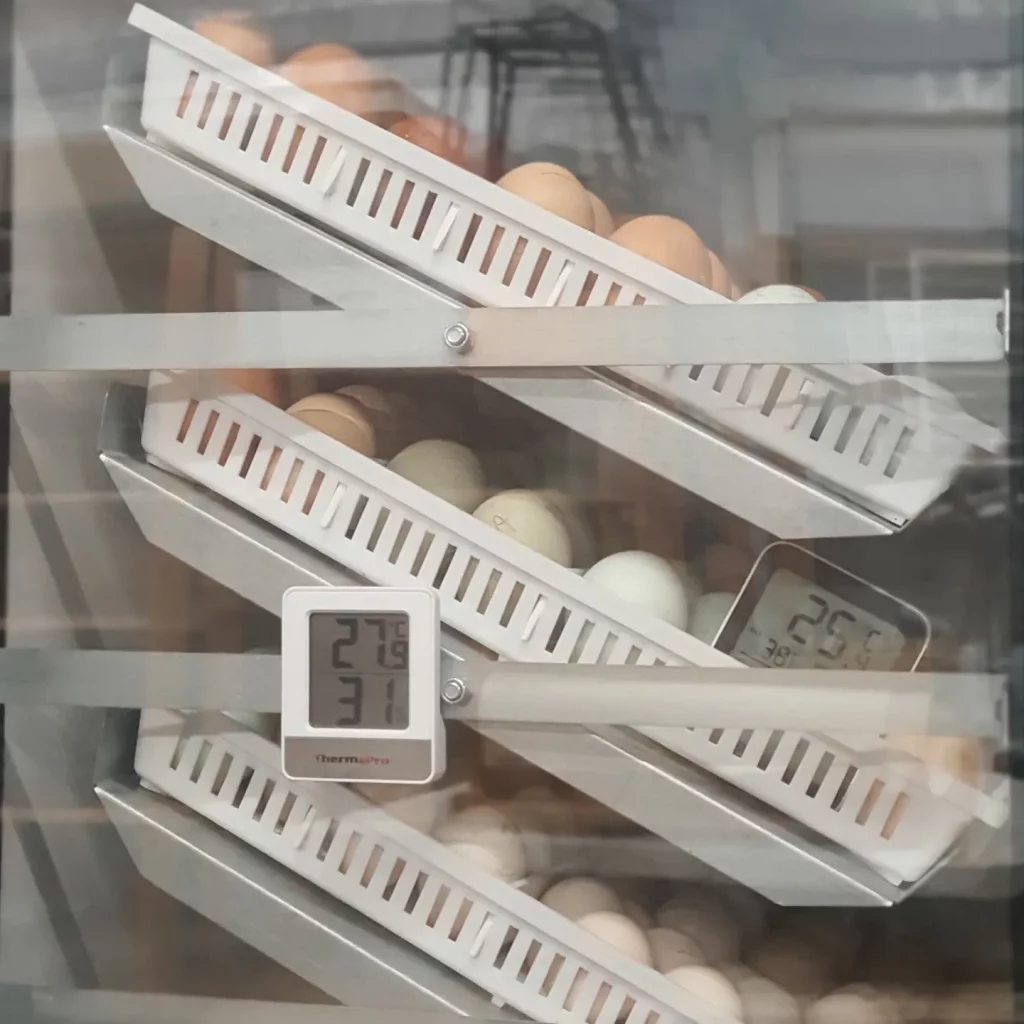
What happens IF power goes out during incubation? Here is our story.
In early July, we popped just over two dozen Japanese Quail eggs into our Brinsea Mini incubator. Normally, we use our big cabinet incubator that can hold up to 800 eggs, but since we didn’t have many chicken eggs at the time, it felt wasteful to run it. So, we used the little manual-turn incubator just to test fertility.
The incubator was placed in the shed- it’s freezing winter here in the Adelaide Hills. We call this hatch the laziest hatching ever. We turned eggs & added water “IF” we remember – only turned eggs prossibly less than 7 times entire period of incubation.
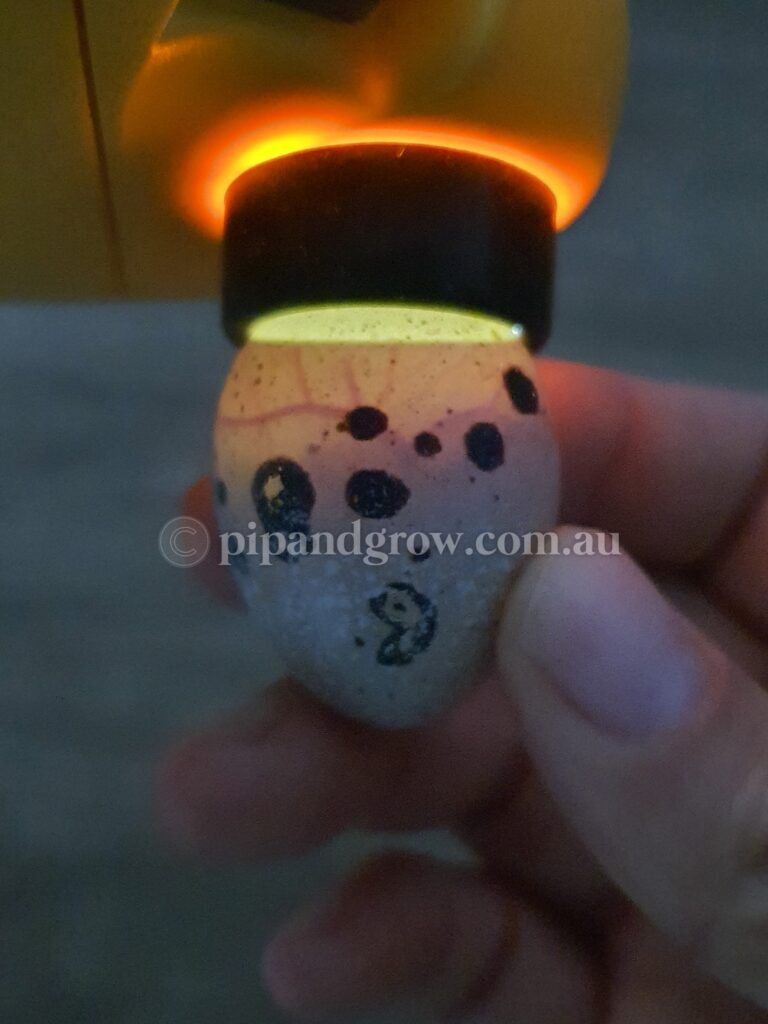
We candled the eggs on Day 7 and were happy to see many looked fertile and developing well.
On the morning of Day 9, we discovered the incubator wasn’t running. The power plug had come loose and lost contact. We had no idea how long it had been off but it could have been at least 24 hours, possibly more since candling. Quail eggs are only 15/16 grams with much thinner shells than chicken eggs, so they lose heat very quickly. The eggs were stone cold ; literally freezing. When we candled them again, we could still see veins and some development, but at that stage, it’s hard to tell whether they’re alive or not. We figured there was nothing to lose, so we decided to keep incubating and see what happens.
Three days later, we candled again. We confirmed they were all still alive, continued incubation.
However, we delayed “lockdown” by 24 hours because their development seemed a little behind the usual timeline.
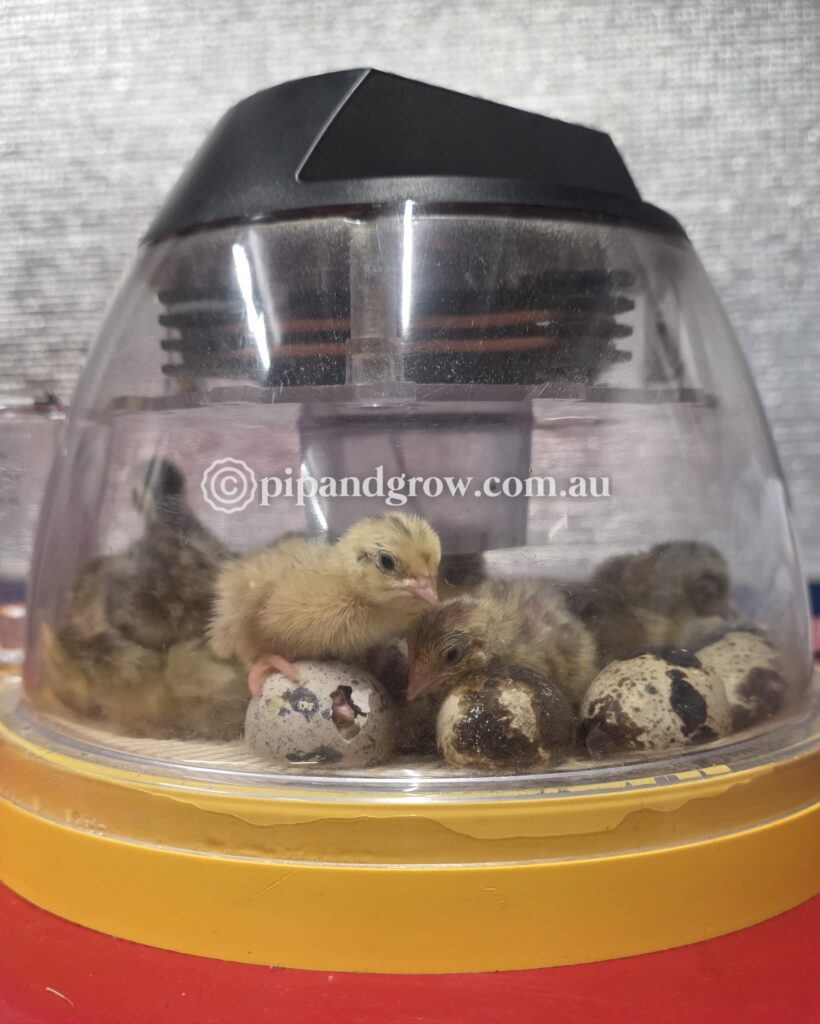
Typically, Japanese Quail hatch on Day 17 or 18(Click to read more info) but this time, nothing happened until Day 19. We finally saw pips on Day 20, and hatching started. by Day 21, we called it the end of the hatch.
Unfortunately, because the hatch was delayed and we couldn’t open the incubator during lockdown, the tiny water reservoir inside dried out. That meant the humidity dropped too low, and a few late developers struggled to hatch. They likely would’ve made it if humidity was better.
We assumed the embryos had gone dormant while the incubator was unplugged, and it took some time for them to “wake up” and resume developing. This likely caused the delayed hatching.
We’ve read that developing embryos can “pause” for a while. It’s nature’s way of letting a broody hen leave the nest for a bit. But honestly, we never expected tiny quail eggs to survive 24–48 hours in a cold shed. They’re tougher than we give them credit for.
If you’re expecting a power outage or accidentally discover your incubator has been unplugged, don’t panic. Do your best to keep the incubator warm, use a hot water bottle (wrapped in a cloth), cover it with a warm towel or blanket, and plug it back in as soon as possible. Then wait and see ; there’s nothing to lose, and sometimes the embryos can survive more than we expect. Time will tell if they’ve made it, so stay calm and let nature do its thing.
